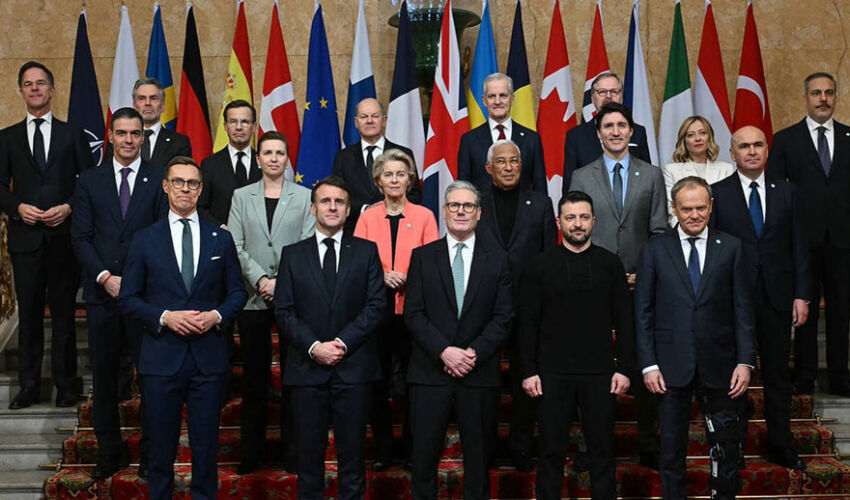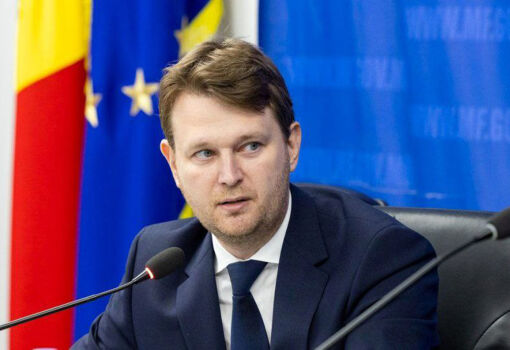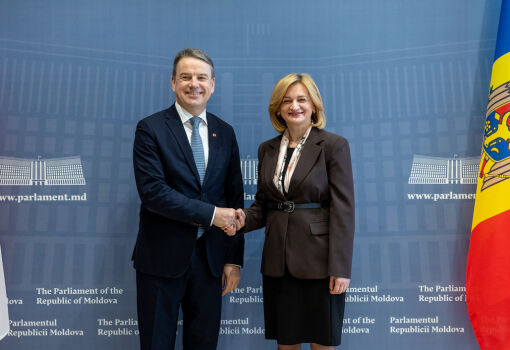
More specifically, it’s not so much Trump’s pivot toward Russia, but away from Europe. He simply wants to end the war in Ukraine and, ideally, the entire transatlantic partnership. The EU, being a project that gives equal rights to all member states, is completely at odds with his worldview.
From Trump’s perspective, the Ukrainian war and America’s commitments to European allies are costly barriers to national greatness. He believes that the US can solely dominate the world if it abandons rules, norms and international obligations. The ensuing great-power rivalry will not necessarily rise to the level of military conflict, but it will necessarily be a war-like struggle – for technological, economic and financial superiority.
All these changes in U.S. strategy profoundly affect Europe. America’s withdrawal creates a power vacuum on a continent already shaken by geopolitical competition. Trump believes that by abandoning Europe, he is taking a load off America, but the Russians and Chinese understand the situation better. They dream of capitalizing on the collapse of the transatlantic alliance. In the end, all of them – Trump, Xi and Putin – will try to divide Europe, albeit for their own special reasons.
Paradoxically, in an era when the global center of gravity has shifted from the Euro-Atlantic region to the Indo-Pacific, Europe is once again at the center of world politics. Without America, Europe may not yet have much geopolitical weight, but that does not mean that EU members and institutions are doomed to be small fish in a sea of sharks. Europe’s technological, economic and military potential is significant, and the success or failure of Europeans in its realization will determine the future world order.
Because of the need for unanimous decisions, the EU has so far been ineffective and too slow, given the significant differences among its members. And so the first challenge is to forge a new cooperative structure. The recently proclaimed “coalition of the willing” supporting Ukraine was the first serious step towards our liberation from dependence on the US. It is noteworthy that non-EU countries joined this initiative, and it was led by France and the UK, not the EU.
Under the continued leadership of France and Britain (both are nuclear powers), this group is to establish a provisional security council that would create a European defense alliance involving Germany, Poland, and Italy. In addition to addressing membership issues, the council could clarify the coalition’s relations with the EU and NATO, determine members’ contributions to conventional and nuclear deterrence, and coordinate military assistance to Ukraine.
These changes, however, will not be enough for Europe to survive on its own. It needs to find new sources of economic strength. In addition to reducing bureaucracy and creating an attractive environment for companies, Europe needs to expand incentives for innovation, research and development. Unless it can channel resources to attract the world’s best scientists and most innovative companies, it will not be able to achieve the level of dynamism it needs.
Finally, Europe should cooperate with its neighbors to the south. Failing to cooperate internationally and concentrating resources on tanks and grenades will only intensify the zero-sum geopolitical rivalry that Europe is trying to evade.
Germany has a central role to play in this effort. For many years it has seemed to ignore Europe, preferring fruitless observation. Fortunately, this dangerous stance seems to have become a thing of the past. Before he had even taken office, the future Chancellor Friedrich Merz had already given the world a powerful signal: Germany was back, and she was back different. The huge sums pledged to strengthen defense and infrastructure show that these are not empty words. Merz realizes that Germany needs a strong, dynamic economy in order to successfully “turn toward Europe”.
But Germany can also help Europe by continuing to advocate dialogue and diplomacy, even as it aggressively pursues a new defense buildup. Military power and openness to contact are two sides of the peacemaking coin. The future of European peace and prosperity is now entirely in the hands of Europeans.
Sigmar Gabriel
former German Federal Minister and Vice Chancellor, Chairman of the Atlantik-Brücke think tank.
Peter Eitel
Senior Director for Geopolitical Risks at FTI Consulting (Germany).
© Project Syndicate, 2025.
www.project-syndicate.org

